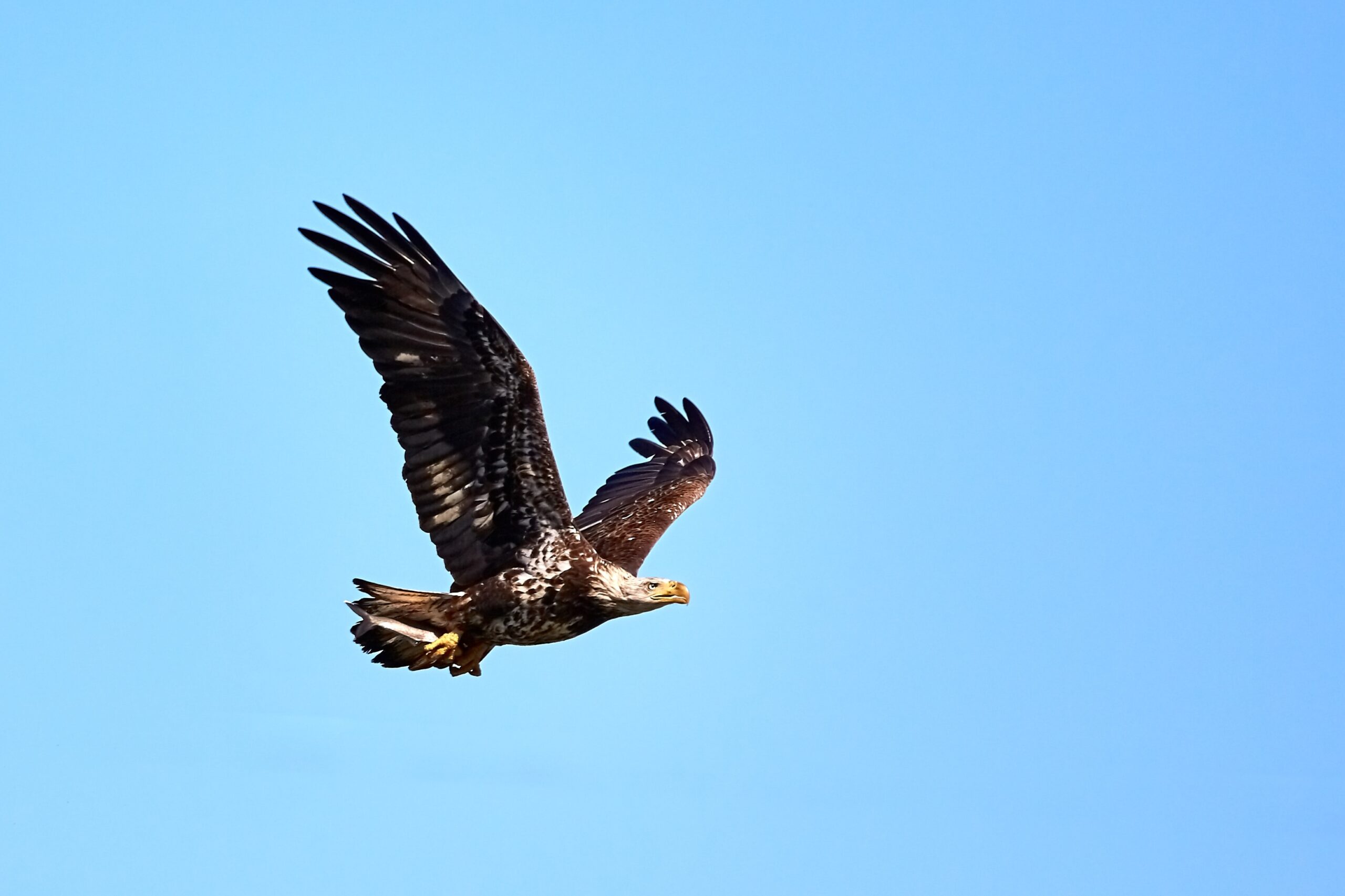Will Harris, a free-range chicken farmer in Georgia, recently learned first hand the importance of transaction costs. In the last few years, bald eagles have been treating his farm as an all-you-can-eat buffet. He was “excited” to see the first pair show up, because he viewed them as an environmental amenity. But now 77 eagles feast on hundreds of chickens a day, costing him more than $100,000 a year in lost income.
What began as a story of coexistence has morphed into conflict. It’s the sort of conflict that arises all the time under environmental regulation. The eagles are protected by several federal laws. But it seems unfair to impose such a significant burden on Harris so that the public can enjoy the benefit of more eagles for free.
Predation by protected wildlife is a common problem. The reintroduction of gray wolves and other apex predators ignited concern among ranchers and shepherds that their stock will be attacked. Fortunately, there’s also a means to resolve these conflicts. For the wolf, for instance, the Defenders of Wildlife established a trust fund to compensate ranchers for lost animals, paid for by supporters of the wolf. In the group’s own words:
Our goal is to shift economic responsibility for wolf recovery away from the individual rancher and toward the millions of people who want to see wolf populations restored. When ranchers alone are forced to bear the cost of wolf recovery, it creates animosity and ill will toward the wolf. Such negative attitudes can result in illegal killing.
Returning to Georgia: there’s a similar, government-run program for eagles. The Farm Service Agency has a Livestock Indemnity Program that compensates producers for losses due to attacks by federally protected animals.
Harris—the free-range chicken farmer—sought compensation under this program. Federal and state officials visited the farm to confirm the eagles were attacking the chicken, concluding that they were. But then the agency claimed it needed yet more proof. After several rounds, the agency consistently determined it was never enough, without indicating what more was required, and denied the request.
After a lengthy administrative appeal, that decision was overturned last month. This win doesn’t mean Harris will get his money, unfortunately. It only means that the agency will have to reconsider its decision in light of the outcome of the appeal.
The takeaway here is that it’s not enough to establish some means to shift the costs of environmental amenities from property owners to environmentalists or the public. Those means must also minimize transaction costs. If reimbursement is uncertain or obtaining it too expensive, the program won’t work.
One way to reduce those costs is to rely more on voluntary exchange in the market rather than government. In fact, Harris has found his own way to make the best of his situation, even as he continues to navigate the government’s red tape. NPR reports:
GOLDSTEIN: Will Harris is clearly resourceful, and now he’s trying something new. At one point as we’re driving around the farm, Will stops to talk to the driver of a pickup truck.
HARRIS: Hey. How are y’all?
GOLDSTEIN: In the bed there’s a photographer with a camera with this giant telephoto lens. People come to the farm now to see the eagles. Will had an eagle day just before I visited. He also rents out cabins to visitors. . . . Will Harris is getting into the eagle tourism business.




